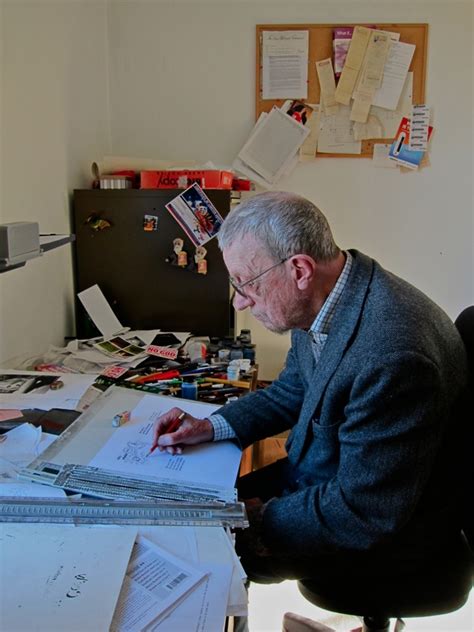A Quote by Murray Bookchin
I don't think anarchism consists of sitting down and saying let's form a collective. I don't think it consists of saying we're all anarchists: you're an anarcho-syndicalist; you're an anarcho-communist; you're an anarcho-individualist.
Related Quotes
I don't feel the individualist anarchists, particularly in the American tradition, including the Transcendental tradition of New England, in any way deserve the derogatory comments that are often made about them by the left. When one gets down to it ultimately, my anarcho-communism stems from a commitment to true individuality. My attempt to recover the power and the right of the individual to control his or her life and destiny is the basis to my anarcho-communism.
Whether they [left in America are] anarcho-communists, anarcho-syndicalists, or libertarians who believe in free enterprise, I regard theirs as the real legacy of the left, and I feel much closer, ideologically, to such individuals than I do to the totalitarian liberals and Marxist-Leninists of today.
In my case I would emphasize anarcho-communalism, along with the ecological questions, the feminist questions, the anti-nuclear issues that exist, and along with the articulation of popular institutions in the community. I think it's terribly important for anarchists to do that because at this moment not very much is happening anywhere in North America.
If anarcho-communism served to regiment the population in the name of libertarian unity, if it served in any way through collectivist measures to deny the rights of the individual instead of reconciling the rights of the individual with the collective, I would definitely stand completely on the side of the individualist who is trying to rescue above all that most precious thing that makes us human - consciousness and personality.
I learned that [Trotskyism] were no different from the Stalinists, and they expelled me, which is the typical Marxist-Leninist way of dealing with dissenters. From that point on, I migrated by the 1950s into anarchism, increasingly emphasizing decentralization. Also, I made the all-important step of bridging my social philosophy with ecology. I did that in 1952 and went on to write a whole series of books developing an anarcho-ecological approach.
Rebellion against technology and civilization is real rebellion, a real attack on the values of the existing system. But the green anarchists, anarcho-primitivists, and so forth (The "GA Movement") have fallen under such heavy influence from the left that their rebellion against civilization has to great extent been neutralized. Instead of rebelling against the values of civilization, they have adopted many civilized values themselves and have constructed an imaginary picture of primitive societies that embodies these civilized values.
Anarcho-syndic alism took for granted that working people ought to control their own work, its conditions, the enterprises in which they work, along with communities, so they should be associated with one another in free associations, and democracy of that kind should be the foundational elements of a more general free society.




























